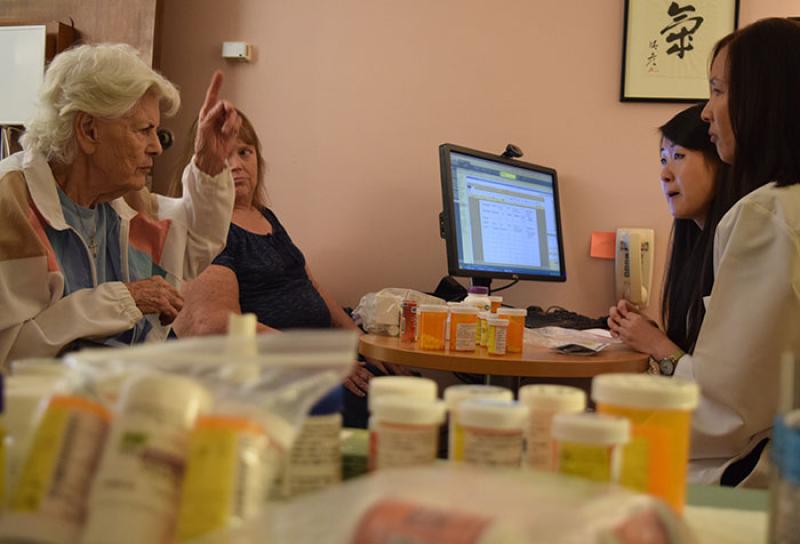
Mobile app aims to help older adults manage medications
Despite known benefits of taking prescription medications on time and with regularity, estimates indicate about half are not taken, leading to increased health care costs and mortality.
With new federal funding, however, a team of researchers from the University of Illinois' College of Applied Health Sciences and the University of Arizona Health Sciences will seek to improve medication adherence rates in older adults with a novel mobile application.
With a team comprised of experts in pharmacy, nursing, educational psychology and cognitive aging, Kinesiology and Community Health professor Wendy Rogers and University of Arizona College of Pharmacy’s Jeannie Lee, PharmD, BCPS, BCGP, will use a five-year, $3.09 million grant from the National Institutes of Health (NIH) to advance and test the Medication Education, Decision Support, Reminding, and Monitoring System 2.0 (MEDSReM-2), an integrated mobile app and companion website.
The MEDSReM-2 system will support medication adherence for hypertension and blood pressure (BP) management for older adults. While not yet publicly available, it is available to the research team and will be further developed and tested with study patients before commercial marketing.
Hypertension, or high blood pressure, is the most prevalent chronic disease among older Americans, estimated to affect 67 percent of people age 60 or older, according to the U.S. Centers for Disease Control and Prevention. BP medications are remarkably effective in reducing negative outcomes of uncontrolled hypertension and proper adherence to blood pressure medications can yield major reductions in heart failure and stroke, as well as preserve cognitive function.
“Though medications are very effective for hypertension control, the typical hypertension medication adherence rate is only about 50 percent, and hypertension control in older adults is only 53 percent,” said Dr. Lee, the college’s assistant dean of student services and an associate professor who specializes in geriatrics and behavioral research. “Proof that medications do not work if people fail to use them.”
In a previous research project led by Kathleen C. “Kathie” Insel, PhD, RN, chair of the Biobehavioral Health Division in the UArizona College of Nursing, Dr. Lee and fellow collaborators developed and field-tested the first iteration of the MEDSReM app. This initial app was a technology translation of the Multifaceted Prospective Memory Intervention (MPMI), a series of strategies seeking to increase medication adherence by supporting cognitive processes.
Rogers, Lee, Dr. Insel and other collaborators now have started to use the grant to build on the original MEDSReM app, which integrates the successes of the MPMI strategies into a single, easy-to-use mobile app. If the technology proves to be useful, they plan to expand the next iteration for other diseases and populations.
The MEDSReM-2 app will capitalize on technological advancements such as integration of a wireless blood pressure monitor to provide feedback on the relationship between a person’s adherence rates and their blood pressure. In addition, the app will enable the smartphone camera to provide an easy set-up for entering medications, supporting missed-dose decisions, and personalizing their reminder schedule. The MEDSReM-2 system will also include a web portal to provide educational materials and feedback visualizations. Through this multidimensional approach, the research team believes patient medication adherence rates will be sustained and BP levels improved.
Other collaborators on the NIH grant include: Dan Morrow, a professor in the College of Education at Illinois, and Tim Hale, a teaching assistant professor in KCH at Illinois; Tracy Mitzner, PhD, Senior Research Scientist at Georgia Institute of Technology, and Josephine D. Korchmaros, PhD, director, UArizona Southwest Institute for Research on Women.
